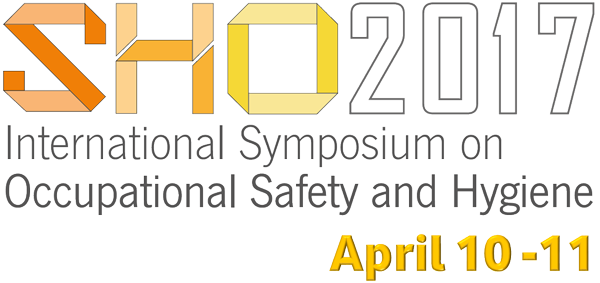
oradores CONVIDADOS
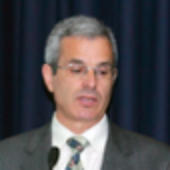
Vítor Martins Primo
Os Simulacros no Contexto das Medidas de Autoproteção Contra Incêndio
Vítor Primo is currently Commander of the Professional Fire Battalion and Civil Protection of Vila Nova de Gaia. He holds a Degree in Civil Engineering from the Military Academy and a Master in Urban Fire Safety by the University of Coimbra. He is also Assistant Professor in ISCIA – Institute of Information and Management Sciences. He was former Technical Assistant and Commander of the Professional Fire Battalion of Porto and Staff of the District Command of Porto at the Civil Protection National Authority.
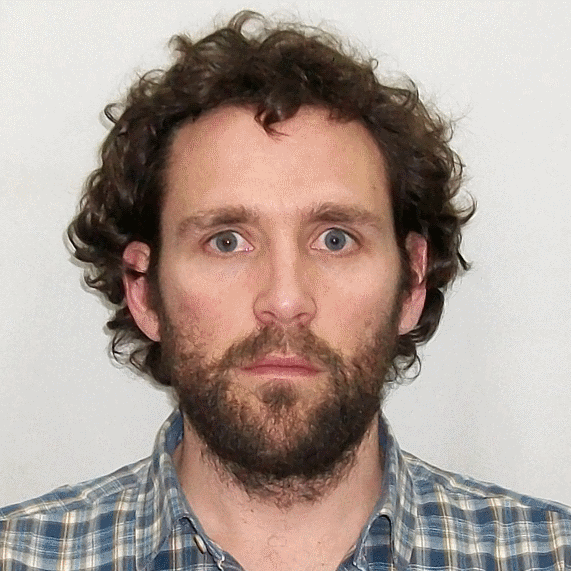
Ignacio Castellucci
Fatigue and sleepiness in the mining industry
Ignacio Castellucci is an associate professor at the School of Medicine for the Universidad de Valparaíso (UV, Chile) and Ergonomic consultants in Ergocare, Chile. He received his Bachelor’s Degree in Physiotherapy from the Universidad de Playa Ancha, Chile in 2006. He also has a post-graduate diploma in Ergonomics and Work Health from Universidad Mayor in Santiago de Chile. During 2009, he received his Master’s Degree in Human Engineering from the University of Minho with the support of The Alban European Program. In addition, in 2015 He got a PhD from the University of Minho with the collaboration of the Delft University of Technology. He has been Project Management and Ergonomic Consultant for more than 20 ergonomics projects in both public and private sector (ABB, CODELCO, LAN, COPEC, MUTUAL, RENAULT). At the University, He has been a member/principal investigator for more than 10 international and national externally funded research projects in the domains of Ergonomics and Human Factors. He is Member of the Chilean Ergonomic Society and Certified Ergonomist N°06. He also has been collaborating with several international peer-reviewed scientific journals in the domain of Ergonomics as a reviewer.
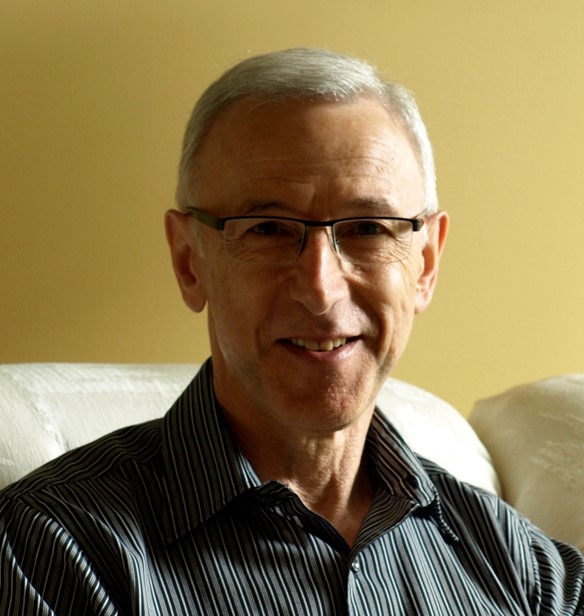
Harry Shannon
Health and Safety Issues in an Aging Workforce
Harry Shannon trained in the UK, doing his undergraduate studies in Mathematics at Oxford University. His graduate work was in Statistics at Birmingham (MSc) and in Applied Statistics at the University of London (PhD). His PhD thesis was a study of work accidents at the Ford Motor Company’s transmission plant in Halewood, near Liverpool.
He was a statistician at the Institute of Occupational Health in London for 5 years, before moving to the faculty of McMaster University in Hamilton, Canada. He joined the Program in Occupational and Environmental Medicine, and was Director from 1999-2005. He conducted numerous occupational epidemiology studies, including ones of workers in nickel mining and processing, and in glass fibre manufacturing. He also led projects to learn about organizational factors related to work safety, and has continued to do research on this topic.
From 2009-2015, he chaired the Methodology Working Group for the Canadian Longitudinal Study on Aging, which has now recruited over 51,000 people to be followed for at least 20 years. He is especially interested in how to manage health and safety in the aging workforce, and the issues facing society from population aging.
He was on the editorial board of Safety Science from 1997–2015, and has been on the editorial board of Occupational and Environmental Medicine since 2004. He was the President of the Canadian Association for Research on Work & Health (CARWH) in 2003-2004.

Alejandro Romero Mirón
De la protección a la promoción de la salud
Alejandro has a a degree in Organisations and Work Psychology from the Universidad de Barcelona. He is a senior practitioner of Occupational Risk Prevention. He is also a member of the Observatory for the of Occupational and Environmental Risk Prevention from the Foundation for motivation of Human Resources. He is the Director of the Prevention Services at the Insurance company MC Mutual..
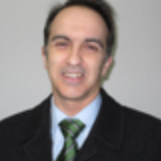
Rui Bettencourt Melo
Paradigm shift in occupational risk management
Rui Bettencourt Melo is an Assistant Professor of the Ergonomics Section of the University of Lisbon and effective researcher of the Architecture, Urbanism and Design Research Center. He has a graduation degree in Chemical Engineering from the Technical University of Lisbon, a MSc degree in Human Engineering from the University of Minho and a PhD in Ergonomics from the Technical University of Lisbon. He has been working at the Ergonomics Section since 1995 where he is responsible for the Occupational Safety & Health area and a member of the Direction Board of the Ergonomics MSc program. He engaged in research concerning risk assessments particularly related to environmental risk factors and regularly publishes on these topics in scientific journals. He also has been collaborating with several international peer-reviewed scientific journals in the domain of Ergonomics and Occupational Safety as a reviewer. A few years ago he joined the national Subcommittee for Standardization on Ergonomics -Occupational Safety and Health (SC3/CT42) and the Certification Committee of Occupational Safety and Health Managers and Technicians at the European Network of Safety and Health Professional Organisations (ENSHPO). He is also Secretary of the Portuguese Society for Occupational Safety and Hygiene (SPOHO) since its foundation in 2004.
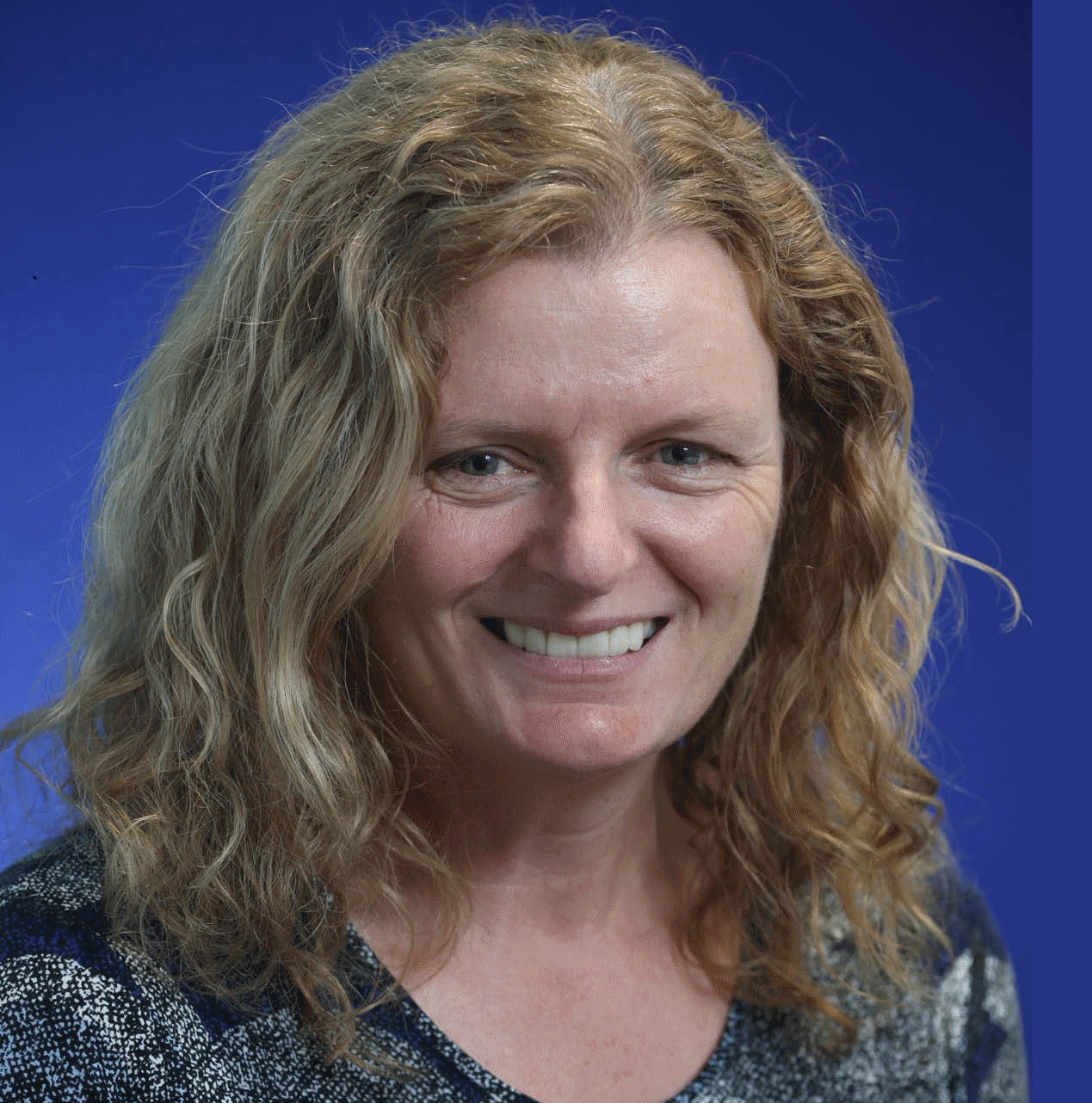
Martina Kelly
Innovating for Safety
Martina Kelly lectures in the College of Engineering & Informatics at the National University of Ireland Galway (NUI Galway). She holds a PhD in Industrial Engineering and an MSc in Occupational Health & Ergonomics. With specialist knowledge in the areas of safety engineering, risk management, and human factors/ergonomics, Martina’s main focus is on the application of scientific and engineering principles to protect people at work. She also undertakes research in the systems engineering space, particularly in relation to the integration of quality, environmental and health & safety management systems in the medical device industry; and on the regulatory challenges facing Small and Medium Enterprises (SMEs).
Martina contributes to teaching and research programmes across both engineering and science at NUI Galway and holds a postgraduate diploma in Academic Practice. She has recently conducted research in the area of ‘Serous Play’ and is currently investigating ideas around using ‘play’ to foster innovation.
Prior to working in academia, Martina spent 10 years in the electronics industry where she worked in training, in quality, and as a technical specialist in the design engineering laboratory.
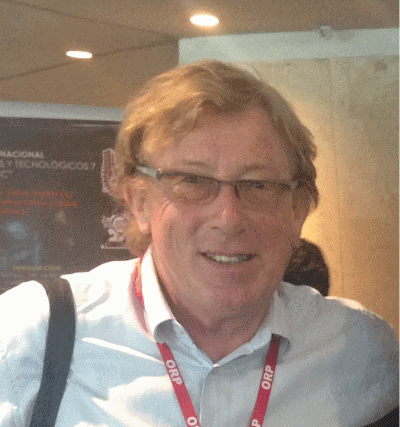
Paul Swuste
Seveso directives in the Netherlands and Belgium: their effect and efficiency
Paul is an associate professor of the Safety Science Group of the Delft University of Technology, The Netherlands. He finished his PhD. thesis ‘Occupational Hazards and Solutions’ in 1996. From 1980 onwards he has worked at the Safety Science Group and has been engaged in research concerning risk assessments of various occupational and process related hazards, and quality assessments of risk management systems of various industries. Examples are the international steel industry, the international rubber industry, the national transport sector, the international asbestos industry, and the international process industry. He publishes with coauthors very frequently on these topics, both in the scientific, international and national press, and in the professional press and media. At TU Delft, he has organised the postgraduate Master’s course ‘Management of Safety Health and Environment’ with Andrew Hale from 1994-2008.
Em atualização…
Programa
A versão final do programa já está disponível
Comissões
Presidente
Secretário
Membros
Gonçalo Perestrelo, SPOSHO
J. Santos Baptista, FEUP
Mónica Barroso, University of Minho
Nélson Costa, University of Minho
Patrício Cordeiro, University of Minho
Paula Carneiro, University of Minho
Rui Melo, University of Lisbon
Comissão Científica Internacional
A. Sérgio Miguel – University of Minho, FEUP & ISCIA, Portugal
Alfredo Soeiro – University of Porto, Faculty of Engineering (FEUP), Portugal
Álvaro Cunha – University of Porto, Faculty of Engineering (FEUP), Portugal
Ana Ferreira – Department of Environmental Health, Coimbra Health School, Portugal
Anabela Simões – Lusófona University – Department of Aeronautics and Transport, Portugal
Angela Macedo Malcata – Higher Institute of Maia (ISMAI), Portugal
Anil Kumar – San Jose State University, USA
Antonio López Arquillos – University of Málaga, Spain
Beata Mrugalska – Poznan University of Technology, Poland
Béda Barkokébas Junior – University of Pernambuco, Brazil
Bianca Vasconcelos – University of Pernambuco – UPE, Brazil
Camilo Valverde – Católica Porto Business School, Univ. Católica Portuguesa, Portugal
Carla Barros – Fernando Pessoa University, Portugal
Carla Viegas – Environment and Health RG – ES de Tecnologia da Saúde de Lisboa, IPL, Portugal
Carlos Guedes Soares – CENTEC, IST, University of Lisbon, Portugal
Catarina Silva – Faculty of Human Kinetics, University of Lisbon, Portugal
Celeste Jacinto – Mechanical & Industrial Engineering Department of New University of Lisbon, Portugal
Celina P. Leão – School of Engineering of University of Minho, Portugal
Cezar Benoliel – Latin-American Society of Safety Engineering (ALAEST) Brazil
Cristina Madureira dos Reis – University of Trás-os-Montes and Alto Douro, Portugal
Delfina Gabriela Ramos – Polytechnic Institute of Cávado and Ave, Technology School, Portugal
Denis A. Coelho – Human Technology Group, DEM&C-MAST, University of Beira Interior, Portugal
Divo Quintela – University of Coimbra, Portugal
Duarte Nuno Vieira – Faculty of Medicine, University of Coimbra, Portugal
Ema Sacadura-Leite – CHLN Occupational Department, New University of Lisbon, Portugal
Emília Duarte – IADE – Creative University, UNIDCOM, Portugal
Emilia R. Kohlman Rabbani – University of Pernambuco – UPE, Brazil
Enda F. Fallon – Industrial Engineering, National University of Ireland Galway, Ireland
Evaldo Valladão – CEDAE – Brazilian Academy of Work Safety Engineering, Brazil
Fernanda Rodrigues – Civil Engineering Department, University of Aveiro, Portugal
Fernando Gonçalves Amaral – Federal University of Rio Grande do Sul (UFRGS), Brazil
Filipa Carvalho – Faculty of Human Kinetics, University of Lisbon, Portugal
Filomena Carnide – Faculty of Human Kinetics, University of Lisbon, Portugal
Florentino Serranheira – National School of Public Health, New University of Lisbon, Portugal
Francisco Fraga López – Professor, Spain
Francisco Masculo – Paraiba Federal University, Brazil
Francisco Rebelo – Faculty of Human Kinetics, University of Lisbon, Portugal
Guilherme Teodoro Buest – ABENC – Brazilian Association of Civil Engineers, Brazil
Gyula Szabó – Óbuda University, Donát Bánki Faculty of Mechanical and Safety Engineering, Hungary
Hamilton Costa Junior – Federal University of Parana, Brazil
Hernâni Veloso Neto – RICOT, Institute of Sociology, University of Porto, Portugal
Ignacio Castellucci – Escuela de Kinesiología, Universidad de Valparaíso, Chile
Ignacio Pavón García – ETSI Industriales, Universidad Politécnica de Madrid, Spain
Isabel L. Nunes – Faculty of Science and Technology of New University of Lisbon, Portugal
Isabel Loureiro – School of Engineering, University of Minho, Portugal
Isabel S. Silva – School of Psychology, University of Minho, Portugal
J. L. Bento Coelho – IST, Lisbon University, Lisbon, Portugal
J. Santos Baptista – University of Porto, Faculty of Engineering (FEUP), Portugal
Jack Dennerlein – Harvard University / Northeastern University, USA
Jesús A. Carrillo-Castrillo – Universidad de Sevilla, Spain
João Areosa – CICS.NOVA; ISLA-Leiria, Portugal
João Ventura – IN+ (Inov., Tecnologia e Políticas de Desenvolvimento), IST, Portugal
Joaquim Góis – University of Porto, Faculty of Engineering (FEUP), Portugal
Jorge Gaspar – Higher Institute of Education and Science, Portugal
Jorge Patrício – National Laboratory for Civil Engineering, Portugal
José Cardoso Teixeira – University of Minho, Portugal
José Carvalhais – Faculty of Human Kinetics, University of Lisbon, Portugal
José Castela Torres da Costa – Medicine Faculty, University of Porto, Portugal
José Keating – School of Psychology, University of Minho, Portugal
José L. Meliá – University of Valencia, Spain
José Miquel Cabeças – New University of Lisbon, FCT/DEMI, Portugal
José Pedro Domingues – University of Minho, Portugal
Joseph Coughlin – Massachusetts Institute of Technology – AgeLab, USA
Juan Carlos Rubio-Romero – University of Málaga, Spain
Julia Issy Abrahão – Universidade de Brasilia, Brazil
Laura Martins – Universidade Federal de Pernambuco, Brazil
Liliana Cunha – University of Porto, Portugal
Luis Antonio Franz – Federal University of Pelotas, Brazil
Luiz Silva – Federal University of Paraíba, CESET-LAT, Brazil
M.C.Rubio-Gámez – Universidad de Granada, Spain
Mª D. Martínez-Aires – Department of Building Construction, University of Granada, Spain
Mahmut Ekþioðlu – Boðaziçi University, Turkey
Manuela Vieira da Silva – Porto School of Health of IPP (ESS.IPP), Portugal
Marcelo M. Soares – Federal University of Pernambuco, Brazil
Marcelo Pereira da Silva – Federal University of Rio Grande do Sul, Brazil
Maria Antónia Gonçalves – School of Engineering, Polytechnic of Porto, Portugal
Maria José Marques Abreu – Dept. of Textile Engineering, University of Minho, Portugal
Marino Menozzi – Human Factors Engineering, ETH Zurich, Switzerland
Mario Cesar Vidal – Federal University of Rio de Janeiro, Brazil
Mário Vaz – FEUP, University of Porto, Portugal
Marta Santos – University of Porto, Portugal
Martin Lavallière – UQAC, Chicoutimi (Qc), Canada
Martina Kelly – National University of Ireland, Galway, Ireland
Matilde Alexandra Rodrigues – School of Health of Polytechnic Porto, Portugal
Miguel Tato Diogo – University of Porto, Faculty of Engineering (FEUP), Portugal
Mohammad Shahriari – Konya Necmettin Erbakan University, Turkey
Mónica Paz Barroso – University of Minho, SPOSHO, Portugal
Nélson Costa – University of Minho, Portugal
Olga Mayan – Higher Institute of Maia (ISMAI) Portugal
Paul Swuste – Safety Science and Security Group TUDelft, The Netherlands
Paula Carneiro – University of Minho, Portugal
Paulo Antonio Barros Oliveira – Federal University of Rio Grande do Sul, Brazil
Paulo Flores – University of Minho, Department of Mechanical Engineering, Portugal
Paulo Noriega – Faculty of Human Kinetics, University of Lisbon, Portugal
Paulo Sampaio – University of Minho, Portugal
Paulo V. R. Carvalho – Nuclear Engineering Institute, Portugal
Pedro Arezes – University of Minho, Portugal
Pedro Mondelo – Universitat Politècnica de Catalunya, Spain
Pedro NP Ferreira – IST-CENTEC (Centre for Marine Technology and Ocean Engineering), Portugal
Pere Sanz-Gallen – School of Occupational Medicine, University of Barcelona, Spain
Ravindra S. Goonetilleke – Hong Kong University of Science and Technology, Hong Kong
Rui Azevedo – Higher Institute of Maia (ISMAI), Portugal
Rui B. Melo – Faculty of Human Kinetics, University of Lisbon, Portugal
Rui Garganta – University of Porto, Portugal
Salman Nazirr – MTDI, University College of SouthEast, Norway
Sérgio Sousa – University of Minho, Portugal
Sílvia Agostinho da Silva – University Institute of Lisbon (ISCTE-IUL), Portugal
Susana Costa – University of Minho, Portugal
Susana Viegas – Higher School of Health Technology of Lisbon, Polytechnic Institute of Lisbon, Portugal
Teresa Patrone Cotrim – Faculty of Human Kinetics, University of Lisbon, Portugal
Waldemar Karwowski – University of Central Florida, USA
Walter Franklin M. Correia – University Federal of Pernambuco, Brazil
Submissões
Leia, por favor, atentamente, todo o conteúdo desta secção antes de submeter o seu Artigo (opção A) / Artigo Curto (opção B).
A submissão deve ser feita por via electrónica, considerando os prazos apresentados em baixo.
O Artigo / Artigo Curto pode ser apresentado oralmente ou através de um Poster.
Tendo em consideração a limitação dos tempos disponíveis para as apresentações orais, alguns autores podem ser convidados a apresentar o seu trabalho sob a forma de poster, mesmo que tenham indicado a sua preferência pela apresentação oral.
Nesta edição do SHO as sessões temáticas nas diferentes salas, serão organizadas por língua de trabalho (Português e Inglês). Assim, as apresentações orais obedecem aos seguintes critérios:
- Artigos submetidos na opção A | Apresentação obrigatória em Inglês
- Artigos submetidos na opção B |
- Artigos em inglês | Apresentação obrigatória em Inglês
- Artigos em Português | Apresentação obrigatória em Português
Nota importante: A inclusão dos artigos aceites nas publicações do colóquio pressupõe que os autores se comprometem a apresentar os respectivos trabalhos no mesmo. Caso o não façam, e não apresentem qualquer justificação, ficarão impedidos de publicar um novo artigo nas edições seguintes do evento.
Descrição do processo de revisão e prazos para as submissões:
Opção A – Submissão de um artigo (4-5 pag.) em inglês que será publicado num livro editado pela CRC Press (Taylor & Francis). Uma vez aceite, a inclusão de cada artigo implica a inscrição de, pelo menos, um dos autores e o pagamento de uma taxa de publicação. O autor inscrito receberá um exemplar deste livro.
Opção B – Submissão de um artigo curto (2-3 pag.) em português ou inglês, que será publicado no livro de proceedings (com ISBN). Uma vez aceite, a inclusão de cada artigo curto implica a inscrição de, pelo menos, um dos autores . Cada inscrição dá direito a 1 artigo curto. A submissão de mais de 1 artigo curto implica o pagamento de uma taxa por artigo adicional.
OPÇÃO A
A incluir em LIVRO (publicado pela CRC Press – Taylor & Francis). Artigos de 4 a 5 páginas escritos em inglês. Os artigos podem ser apresentados oralmente ou em poster.
- 20/11/2016NOVA DATA
- Data limite para a submissão de artigos.Envio pelos autores para dupla revisão anónima
- 18/12/2016Envio da decisão dos revisores ao autor principal
- Artigo rejeitado | Aceitação condicional do artigo | Artigo aceite
- 05/01/2017(Nova data) Submissão de artigos revistos
- Revisão pela Comissão Organizadora
- Artigo rejeitado | Artigo aceite
- 15/01/2017Envio da decisão ao autor principal, por email
- Os artigos aceites serão incluídos no Programa Final e no LIVRO (a ser proposto à ISI e à Scopus para indexação)
Para a preparação dos ARTIGOS, os autores deverão ler e seguir cuidadosamente todas as instruções de submissão e seguindo de forma obrigatória o formato indicado nos modelos disponibilizados AQUI. Será importante que no ficheiro enviado (em .doc ou .docx) não haja qualquer identificação dos autores, uma vez que o processo de revisão é anónimo.
Regras básicas para submissões de artigos:
- Os artigos devem ser submetidos em formato word (.doc ou .docx) no campo designado por “Paper” e a versão .pdf do artigo deve ser submetida obrigatoriamente no campo designado por “Attachment“.
- Os artigos têm de ser submetidos em inglês;
- Os autores devem indicar a área científica específica do artigo, usando as categorias sugeridas ou indicando “outras” (categoria nº27);
- Os artigos serão revistos de acordo com os seguintes critérios: relevância do trabalho; relevância para o SHO; qualidade técnica/científica; originalidade; qualidade da escrita;
- Pelo menos um dos autores deve estar registado até à data de envio da decisão final ao autor principal. Se nenhum dos autores estiver inscrito até essa data, o artigo será, automaticamente, removido do programa e do livro.
OPÇÃO B
Submissão de ARTIGO CURTO com 2 a 3 páginas, em português ou inglês. Os ARTIGOS CURTOS podem ser apresentados oralmente ou em poster.
- 15/01/2017(NOVA DATA) Prazo para a submissão de artigos!!
- Envio pelos autores para dupla revisão anónima
- 12/02/2017Envio da decisão dos revisores ao autor principal
- Artigo rejeitado | Aceitação condicional do artigo | Artigo aceite
- 05/03/2017Submissão de artigos revistos
- Revisão pela Comissão Organizadora
- Artigo rejeitado | Artigo aceite
- 12/03/2017Envio da decisão ao autor principal, por email
- Os ARTIGOS CURTOS serão incluídos no Programa Final e publicados no livro de proceedings (com ISBN).
Para a preparação dos ARTIGOS CURTOS, deve ser utilizado o modelo disponibilizado AQUI. Será importante que no ficheiro enviado (em .doc ou .docx) não haja qualquer identificação dos autores, uma vez que o processo de revisão é anónimo.
Regras básicas para submissões de artigos curtos:
- Os artigos curtos podem ser escritos, quer em inglês, quer em português;
- Os autores devem indicar a área científica específica do artigo curto, usando as categorias sugeridas ou indicando “outras” (categoria nº27);
- Se o artigo curto for submetido em português, deve ter também o título em inglês (português e inglês), mas o abstract e keywords devem ser redigidos apenas em inglês;
- A extensão mínima é de 2 páginas e a máxima de 3 páginas, de acordo com o formato proposto no template. Os artigos curtos com mais de 3 páginas, ou menos de 2, serão automaticamente rejeitados;
- Os artigos curtos serão revistos de acordo com os seguintes critérios: relevância do trabalho; relevância para a SHO; qualidade técnica/científica; originalidade; qualidade da escrita;
- Pelo menos um dos autores deve estar registado até à data de envio da decisão final ao autor principal. Se nenhum dos autores estiver inscrito até essa data, o artigo curto será, automaticamente, removido do programa e da publicação de proceedings.
INSTRUÇÕES GERAIS PARA POSTERS
– Prepare, por favor, o seu poster, respeitando as dimensões do template (90 cm de largura x 70 cm de altura);
– Recomenda-se que os posters sejam preparados de modo a serem impressos numa única folha;
– Considerar a parte superior do poster para o título e autores, como indicado no resumo submetido;
– Texto, ilustrações, etc., devem ser, suficientemente, destacados para serem lidos a partir de uma distância de 2 metros;
– Os posters deverão ser impressos pelos autores e entregues no secretariado do colóquio durante a manhã de 10 de Abril;
– A montagem dos posters nos placards é da responsabilidade da organização.
Para a elaboração dos posters, deve ser usado o modelo disponibilizado AQUI.
Apoios
Organização

Co-Organizadores

Apoio Institucional
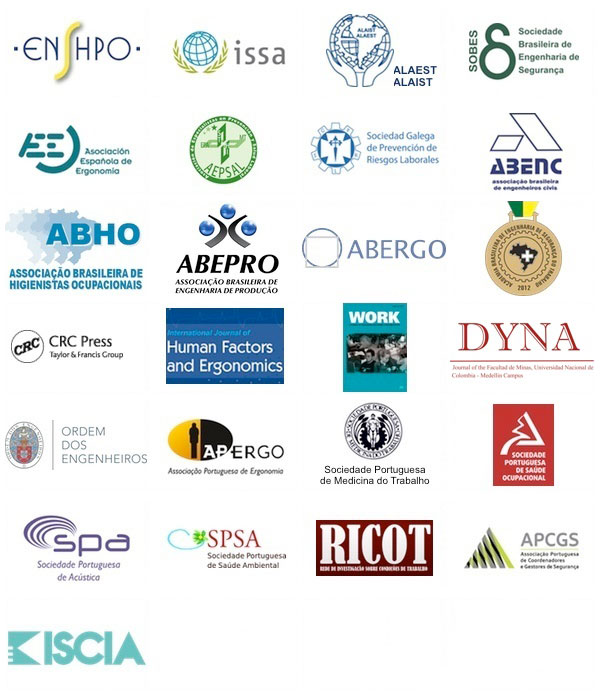
MEDIA PARTNERS


PATROCINADORES
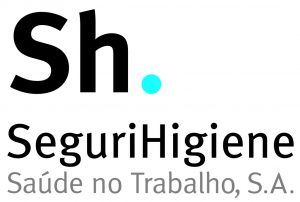
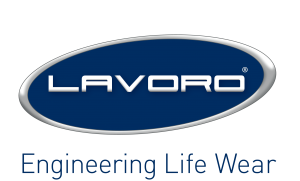

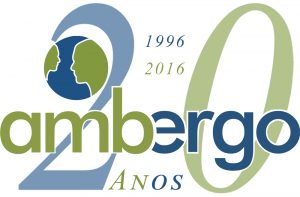
Registo
O registo pode ser efetuado on line (apenas disponível em Inglês), o qual permite o pagamento, igualmente, on line. AQUI
Para mais informações sobre inscrições ou casos especiais, contacte a Comissão Organizadora: sho2017@sposho.pt
Taxas de Inscrição
As taxas apresentadas (em euros) incluem 2 almoços (não contemplados nas inscrições como estudante), toda a documentação do congresso (incluindo o proceedings book com os artigos curtos) e coffee breaks. O livro de artigos completos, editado pela Taylor & Francis NÃO está incluído no preço de inscrição.
| Nova Data
Até 19/MAR/2017 |
Depois de 19/MAR/2017 | |
| Membro SPOSHO* | 120 € | 150 € |
| Autor** | 170 € | 210 € |
| Outro | 210 € | 250 € |
| Estudante*** | 75 € | 100 € |
| Artigo curto adicional (>1 artigo curto) | 30 € /short-paper | N.A. |
| Publicação de artigo completo (cada) **** | 75 € /full-paper | N.A. |
*Com as quotas em dia. Para mais informações, visite o site da SPOSHO
** Para a publicação dos artigos curtos e/ou artigos , pelo menos um dos autores deve estar registado. Para os artigos (opção A) até 15/JAN/2017, e para os artigos curtos (opção B) até 19/MAR/2017.
*** Para ser considerado estudante a tempo inteiro (alunos de mestrados e doutoramento não elegíveis), deve ter menos de 30 anos e apresentar uma declaração da Universidade. Este tipo de inscrição NÃO comtempla almoços.
**** O pagamento da inclusão de um artigo dá direito a 1 livro (editado pela Taylor & Francis) apenas para o autor que faz esse pagamento.
Politica de cancelamento e reembolso
Apenas serão reembolsados a 100%, pedidos de cancelamento da inscrição anteriores a 19 de Março de 2017. Para pedidos efetuados entre 19 de Março e 31 de Março será efetuado um reembolso de apenas 60% do valor pago. Depois de 31 de Março de 2017 não serão efetuados reembolsos.
Seja associado da SPOSHO
Visite www.sposho.pt e obtenha um desconto na inscrição superior a 35%
Secretariado oficial e reserva de Hotel
Viagens Abreu, S.A.
A/C Departamento de Congressos
Avenida dos Aliados, 207
4000-067 Porto, PORTUGAL
tel: +351 222 043 570 | fax: +351 222 043 693
e-mail: lurdes.catalino@abreu.pt
Local
As sessões principais terão lugar no Auditório Nobre da Escola de Engenharia da Universidade do Minho. As sessões paralelas terão lugar em salas próximas do auditório nobre e que serão divulgadas mais tarde.
Como chegar a Guimarães/Universidade do Minho?
O aeroporto mais próximo é o aeroporto do Porto, “Aeroporto Francisco Sá Carneiro”.
Poderá fazer a viagem desde o aeroporto até Guimarães usando um shuttle directo (para mais informações poderá visitar este link).
Em alternativa, poderá apanhar um táxi (~50 km), ou uma opção mais barata será ir de metro, usando o “Metro do Porto” (www.metrodoporto.pt), indo desde o aeroporto até à estação de comboios de Campanhã. O comboio para Guimarães (ver horário) parte da estação de comboios de Campanhã.
De carro e usando um sistema de navegação, a Universidade do Minho poderá ser identificada através da seguinte posição GPS:
N 41º27’01.58’’
W 8º17’38.08’’
Contactos
Comissão Organizadora
E-mail: sho2017@sposho.pt
Tel: +253 510 367
DPS, Universidade do Minho
4800-058 Guimarães
PORTUGAL
Secretariado Oficial e Alojamento
Viagens Abreu, S.A.
A/C Departamento de Congressos
Avenida dos Aliados, 207
4000-067 Porto
PORTUGAL
tel: +351 222 043 570
fax: +351 222 043 693
e-mail: lurdes.catalino@abreu.pt
SPOSHO
URL: http://www.sposho.pt
E-mail: sposho@sposho.pt
DPS, Universidade do Minho
4800-058 Guimarães
PORTUGAL